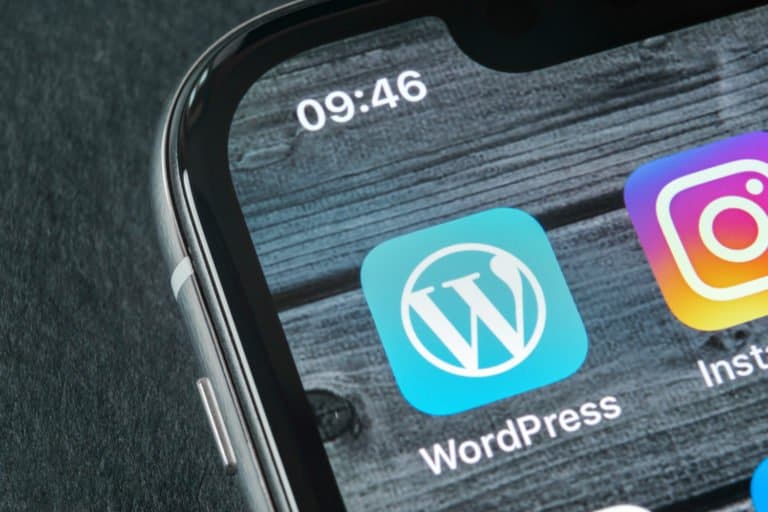Discussions about Apple’s App Store and its policies take place more frequently. These include the 30 percent cute of revenue that Apple takes, but also whether or not to allow or block specific applications. Accusations that Apple is abusing its power are not uncommon but proving it and changing the outcome was nearly impossible. Until now, because Apple messed up and has proved it’s own abuse of power.
Apple has made a giant mistake, by very clearly abusing its power to force a company to add paid services to an app. The only goal the tech giant had was to benefit from the revenue. The company in question offered a purely free service and didn’t want to promote paid services through its application at all, but was no longer allowed by Apple to update the app if no paid services were added.
What Apple didn’t realise is that the company in question relies on a huge open source community. A community that does not like this kind of behaviour. A community that can reach out to the media, and get attention from government bodies that can hand out fines to Apple for its abuse of power.
WordPress community won’t be Apple fans for a while
The company in question is Automattic, the developer of the well-known WordPress content management system (CMS). It is estimated that about 35 percent of all websites worldwide use the CMS.
Automattic offers WordPress.org, a version with a large open-source community and with all kinds of free plugins and documentation. There is also WordPress.com, where the company offers a managed WordPress website for a fee and additional paid options such as your own domain name are available. These are two separate worlds.
Besides these two worlds, there are also WordPress apps for Android and iOS. These apps have the function that people with a WordPress website can easily manage or update their website through their smartphone or tablet. The commercial services of WordPress.com are not mentioned or promoted anywhere. You can create a free WordPress.com website, but once again the paid services are not mentioned. Nevertheless, Apple suddenly blocked the iOS app.
Apple blocked updates for WordPress app
Apple required Automattic to add in-app purchases. This allows additional services, such as a domain name, to be purchased from the WordPress app. So Apple can then take 30 percent of that revenue. This was not an option for Automattic, because the app serves both target groups: the WordPress.org community and WordPress.com users. Paid options don’t fit with the open source community.
One of WordPress’s lead developers, Matt Mullenweg, wasn’t happy with Apple’s behaviour and went on research. He found out that deep down in the support pages, which are visible in the app, the paid services of WordPress.com are mentioned. So he decided to suggest to Apple to block those pages in the app so they wouldn’t be visible. He hoped that Apple would release the WordPress app, and they could continue to update the app again. Apple refused, paid options had to be added to the app.
WordPress concedes, but community resists
In the end, Mullenweg saw no other solution than to meet Apple’s requirements. The app is used a lot. Not being able to implement security updates or new features would do more damage. However, Mullenweg did decide to announce the features via Twitter because he knew that community members would not like the paid options. He also explained that Apple forced them, and it wasn’t by choice.
Those Tweets caused the community to come into play and protest against Apple, also they got the media involved.
At first, Apple didn’t budge and insisted that WordPress did not comply with the App Store rules and therefore had to add the paid features. It looks like someone woke up at Apple after that. The company seemed to realise that their claim was not very strong and its abuse of power. The potential reputation damage and sanctions of antitrust organisations could be much more significant than the possible sales revenue. So Apple decided to withdraw its complaint, and WordPress does not have to add any paid services.
The fact remains that Apple has already caused damage. It abused its power to force an app developer to make money for its cash cow, the App Store. WordPress has a big community that fought back. Many smaller app developers don’t have this luxury.
More companies are protesting against Apple’s App Store policy
Recently companies have become aware that Apple and Amazon have made a deal, where Amazon is not paying 30 percent but only 15 percent of revenue made with Amazon Prime Video subscriptions through the iOS Prime Video app. It became known after the House Antitrust subcommittee in the United States published an email with these agreements.
Many major news publishers in the United States have rallied against Apple. For years, many newspapers have paid 30 percent of their revenue to Apple for subscriptions taken out through the iOS app. In Europe, Spotify has filed a complaint with the European Commission about the 30 percent revenue cut. This agreement with Amazon is clear evidence for Spotify that it has been paying too much.
Finally, Epic Games, the creator of the well-known game Fortnite, has started a lawsuit against Apple. It wants a judge to rule on whether the 30 percent is legitimate. Apple removed the Fortnite app from the App Store, because in-game purchases could be made outside the app store.
All in all, the pressure on Apple is starting to increase. In addition, it has become very easy to prove Apple’s abuse of power. There is a bigger chance now that there will be court rulings against Apple. Also, government bodies cannot ignore everything that is happening and will add this to their investigations into the App Store.
Tip: Will Google, Apple and Amazon change after historic antitrust hearing?
